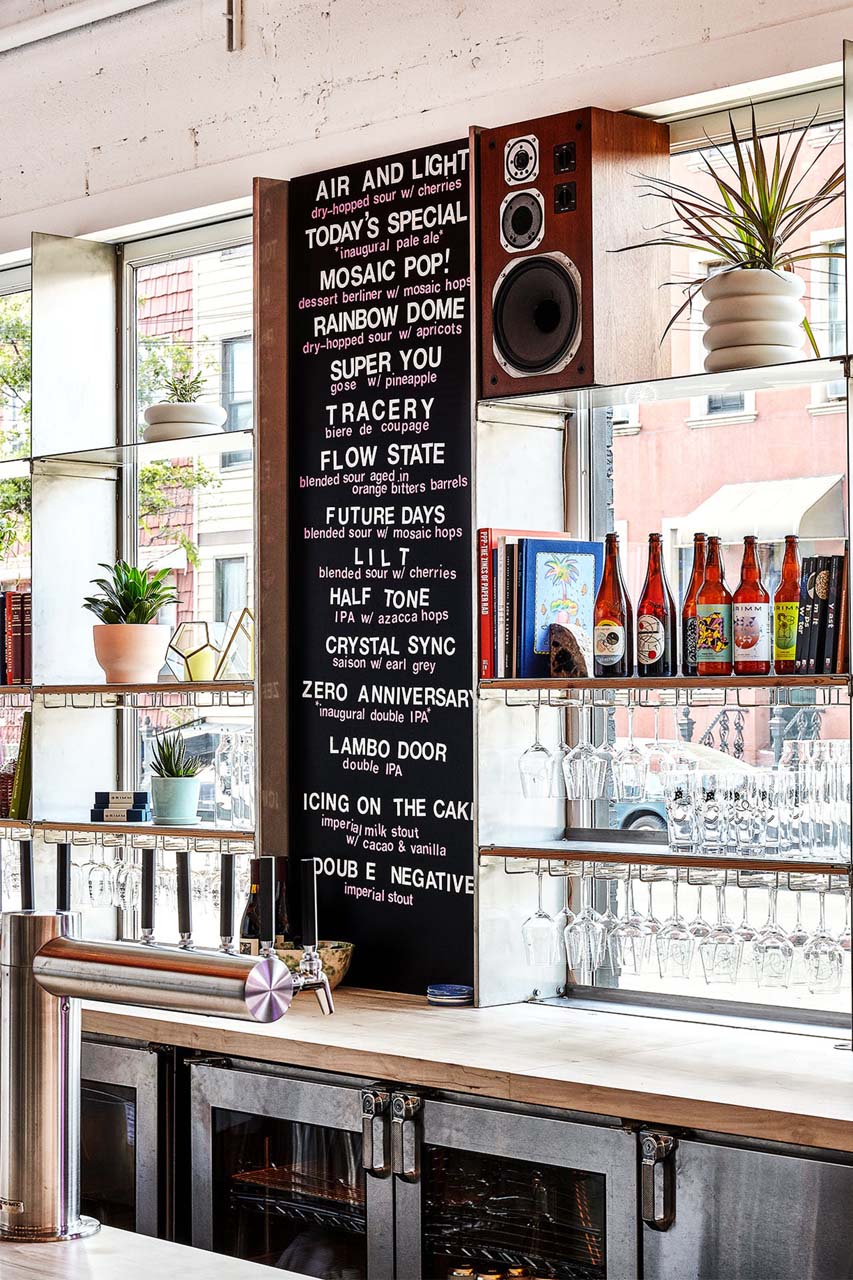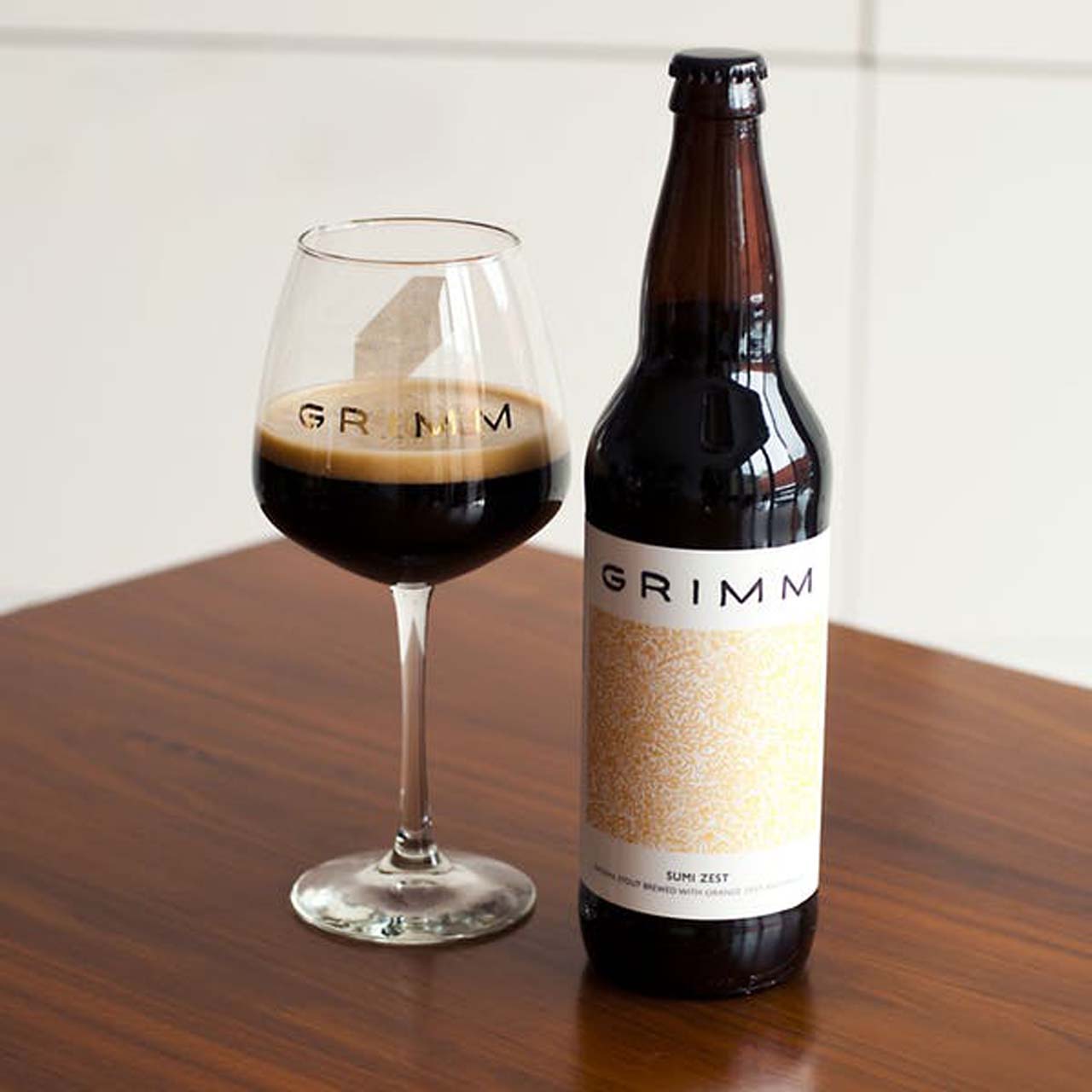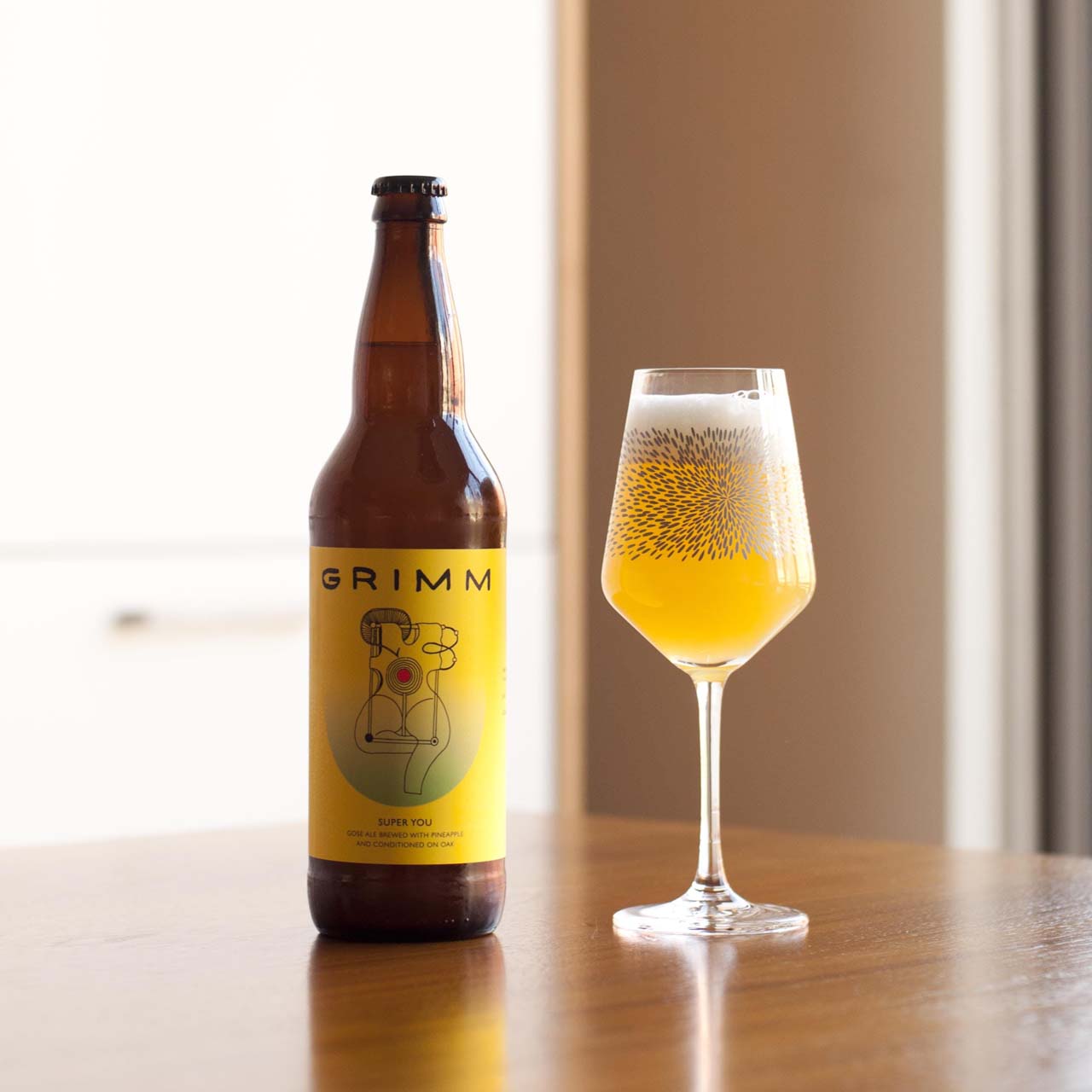AFTER FIVE YEARS OF OPERATING A “NOMADIC BREWERY,” A RESTLESS PAIR OF HOPS, YEAST, AND MALT EXPERIMENTERS OPENED A MAKER FACILITY AND TAPROOM IN EAST WILLIAMSBURG
BY MATT SCANLON
When President Jimmy Carter signed legislation in 1979 that legalized home brewing, inspiration and experimentation exploded, as did the number of microbreweries within just a few years. We’ve essentially been living in small craft age ever since.
Founded in 2013 by Lauren and Joe Grimm after they’d engaged in nearly a decade of experimentation of their own, Grimm Artisanal Ales had an aim to, as its mission statement reads, produce “concise, elegant ales epitomizing the creative spirit of the American artisan.” For five years, the couple, who met as students in Providence, Rhode Island, operated the business as a “nomadic brewery,” but principally out of their Gowanus apartment. In 2018, however, they opened a permanent maker facility and taproom in East Williamsburg, just a block from Cooper Park.

Early brewing experiments in Providence featured ingredients like kvass, kombucha, and ginger to produce mead and hard cider, in addition to traditional beer. In time, and particularly while performing as musicians in Belgium, an abiding fascination with the Belgian ale process developed its “subtle and distinctive qualities of malt, hops, and yeast that created [unique] aromas and flavors,” as they explain. This particular ale variation typically results in a lighter colored finish, and to us a more subtle and mysterious flavor profile than that of a standard lager, say.

It’s clear that early experimental energies haven’t left them, however, as Grimm Artisanal Ales lists in its roster of taps and bottles no less than 197 unique and often wildly named brews, ranging from Gathering with Jester King II: Merlot (a blended, barrel aged sour) to Super Spruce (dry hopped sour), from Double Negative (Imperial stout) to Today’s Special Motueka (American pale ale), the last featuring “one of our favorite New Zealand hops, Motueka, which taps into flavors of key lime pie, smarties, and sweet tropical fruit.” The 19 tap selections at press time include a traditional German pilsner, Chronos that has become life medicine for this corespondent crisp, lovely, and dry. “Hopped with Saphir, a delightful varietal that lends black pepper spice and a marked noble character reminiscent of Hallertau Mittelfruh,” the Grimms detail, “it’s quite hoppy in an old world mode, ultra-soft on the palate, and rewards a slow pour with a dense head of meringue like foam that lasts all the way to the bottom of the pint.”

The Grimms’ bright, airy taproom, its picture windows looking onto the Metropolitan Avenue thrum, is also home to special events like new release celebrations and just passed holiday festivities, and every week brings Vintage Bottle Wednesdays (5:00 to 10:00 p.m.). “Since we opened in 2018, we’ve been cellaring some of our most special Grimm sours and stouts,” their site details. “At this event, you’ll be able to purchase whole vintage bottles from our continuously growing cellar list.” (Visit instagram.com/grimmales for weekly specials.)
Asked about recent inspirations, Joe Grimm related that, “throughout winter and spring, we are brewing spontaneous fermentation wild beers using only the airborne yeast and bacteria native to our Brooklyn neighborhood. These will be aged in oak barrels for up to three years, but we’ll release a sneak preview of one year old spontaneous beer this spring one that was brewed last spring.”
“In February,” he added, “we are re-releasing batch number two of a beer called Field Rotation, which we created for the first time a couple of years ago in collaboration with Blue Hill restaurant [in Manhattan]. It includes the full cycle of cover crops that help farmers to replenish their soil. The historical tradition of rotating crops creates nutrient rich growing conditions that produce the most flavorful grains and vegetables. Clover is a cover crop that nourishes the soil; oats and rye improve soil structure and suppress weeds; barley rids the field of fungus and pests. The ingredients in this beer both contribute to and result from the health of the whole farm. It’ll be brewed with malt grown in New York, too.”

Grimm Artisanal Ales
990 Metropolitan Avenue / 718.564.9767 / grimmales.com

